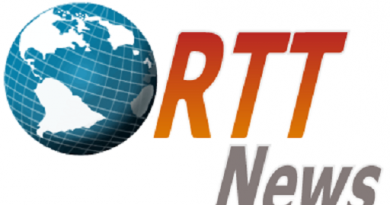U.S. says it's back at the table to help global economic recovery
WASHINGTON/LONDON (Reuters) – New U.S. President Joe Biden’s administration told allies on Friday it was re-engaging with them to help steer the global economy out of its worst slump since the Great Depression, a contrast with go-it-alone approach of Donald Trump.
U.S. Treasury Secretary Janet Yellen told her peers from the Group of Seven rich nations that Washington was committed to multilateralism and “places a high priority on deepening our international engagement and strengthening our alliances”.
Yellen spoke to the G7 in an online meeting, chaired by Britain, at which she called for continued fiscal support to secure the recovery, saying “the time to go big is now”.
Britain said officials discussed giving help to workers and businesses hit by the pandemic while ensuring sustainability of public finances “in the long term”.
As well as the United States and Britain, the G7 includes Japan, France, Germany, Italy and Canada.
Italian Economy Minister Roberto Gualtieri said the group had committed to continuing coordinated action to support the economy. “The withdrawal of policy support is premature,” he wrote on Twitter.
Biden has proposed a further $1.9 trillion in spending and tax cuts on top of $4 trillion of coronavirus relief measures enacted by his predecessor Trump.
British finance minister Rishi Sunak is expected to say next month that he will extend his economic rescue programmes and that fixing public finances will have to be addressed later.
Britain said G7 officials agreed that making progress on reaching “an international solution to the tax challenges of the digital economy” was a key priority.
Countries have been trying to revive attempts at a global approach to taxing giant digital firms – many of them American, such as Amazon and Google – after progress was blocked by Trump’s administration.
Britain called on G7 countries to agree a joint approach to taxing internet giants by mid-2021, a deadline agreed by the wider Group of 20 nations.
HELP FOR THE VULNERABLE
Sunak stressed “the moral, health and economic case” for fast global vaccine distribution and said international financial institutions had to help vulnerable countries respond to the pandemic.
The G7 had been expected to back a new allocation of the International Monetary Fund’s own currency, known as special drawing rights, to help low-income countries hit by the coronavirus crisis.
Officials from the United States, the IMF’s biggest shareholder, had signalled they were open to a new issuance of $500 billion, sources said on Thursday – another shift by the Biden administration.
Yellen urged the G7 countries and international financial institutions to address the challenges facing low-income countries who are struggling to respond to the pandemic, the U.S. Treasury said.
A G7 source, who asked not to be named, said the United States told other countries it needed a few weeks to finalise the SDR increase.
Sunak called on private creditors to give debt help to the poorest countries and said climate change and nature preservation would be priorities for Britain’s G7 presidency.
British Prime Minister Boris Johnson is due to host the first in-person summit of G7 leaders in nearly two years in June at a seaside village in Cornwall, southwestern England.
Trump threw the G7 into chaos in 2018 when he said he was backing out of a joint communique after a leaders’ summit because of a trade dispute with Canada.
World Bank President David Malpass said the G7 had a “good discussion” of inequality, COVID-19 vaccinations, climate change, economic vulnerabilities and debt reduction for poor countries.
Yellen said the G7 should expect to see the U.S. Treasury’s engagement on climate change to “change dramatically relative to the last four years”.
Source: Read Full Article

